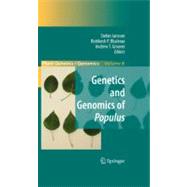
What is included with this book?
| Overview and an Introduction to the Biology of Populus | |
| Why and How Populus Became a "Model Tree" | p. 3 |
| Salient Biological Features, Systematics, and Genetic Variation of Populus | p. 15 |
| Growth and Physiology | p. 39 |
| Populus Genetics and Genomics | |
| The Populus Genome and Comparative Genomics | p. 67 |
| Nucleotide Polymorphism, Linkage Disequilibrium and Complex Trait Dissection in Populus | p. 91 |
| Transformation as a Tool for Genetic Analysis in Populus | p. 113 |
| Populus Resources and Bioinformatics | p. 135 |
| Genetics and Genomics of Key Populus Traits | |
| Reproductive Development in Populus | p. 155 |
| Perennial Life Style of Populus: Dormancy Cycling and Overwintering | p. 171 |
| Wood Formation in Populus | p. 201 |
| Populus Responses to Abiotic Stress | p. 225 |
| Defense and Nutrient Mutualisms in Populus | p. 247 |
| The Impact of Genomics on Advances in Herbivore Defense and Secondary Metabolism in Populus | p. 279 |
| Populus for the Future | |
| Populus Breeding: From the Classical to the Genomic Approach | p. 309 |
| Conservation Genomics | p. 349 |
| Index | p. 369 |
| Table of Contents provided by Ingram. All Rights Reserved. |
The New copy of this book will include any supplemental materials advertised. Please check the title of the book to determine if it should include any access cards, study guides, lab manuals, CDs, etc.
The Used, Rental and eBook copies of this book are not guaranteed to include any supplemental materials. Typically, only the book itself is included. This is true even if the title states it includes any access cards, study guides, lab manuals, CDs, etc.